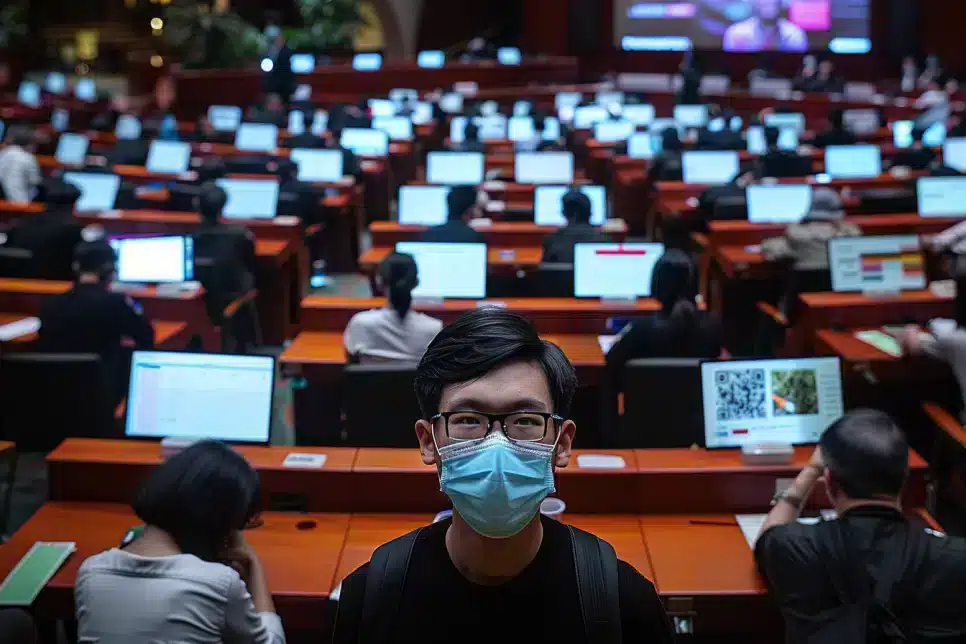In a move that has stirred international concern, Hong Kong lawmakers, in a unanimous decision on Tuesday, passed the Safeguarding National Security Bill, a piece of legislation granting the government augmented powers to suppress dissent. This law is perceived as an extension of the political crackdown initiated by the pro-democracy protests in 2019, with the legislature acting swiftly to ratify the bill during a particular session. The bill outlines severe penalties for offenses deemed threats to national security, including “colluding with external forces,” treason, insurrection, and espionage, among others.
“Today is a historic moment for Hong Kong,” declared Hong Kong leader John Lee, signaling the government’s resolve to enforce this law rigorously. Critics argue that this law, building on a similar security measure imposed by Beijing in 2020, will further deteriorate the city’s civil liberties—a breach of the promises made during the 1997 handover from British to Chinese rule.
The legislative process saw the Hong Kong Legislative Council, now dominated by Beijing loyalists after an electoral revamp, expedite the bill’s approval, a move that John Burns, an honorary professor of politics and public administration at the University of Hong Kong, described as reflective of a “disabled accountability system, weakened by design.” Despite some amendments proposed by legislators and adopted by the government, many observers and lawmakers focused on enhancing the state’s control over national security issues and escalating penalties for related crimes, according to Burns.
The international reaction to the bill’s passage has been swift and critical. The UN High Commissioner for Human Rights, Volker Türk, condemned the accelerated adoption, viewing it as “a regressive step for the protection of human rights in Hong Kong.” The U.K., the EU, and the U.S. have also expressed concerns, highlighting the law’s broad definitions and potential implications for international business, human rights, and Hong Kong’s status as a global hub.
Despite official assurances that the law targets only “a tiny minority” and balances national security with rights and freedoms, its broad scope and stringent penalties have incited fears among businesspeople, journalists, and activists alike. The legislation’s global jurisdiction for certain crimes further complicates the landscape, posing risks even for actions conducted outside Hong Kong.
As Hong Kong’s political landscape undergoes profound changes, with many leading activists either prosecuted or in exile and significant pro-democracy media outlets shut down, enacting this new security law marks another considerable pivot away from the freedoms once enjoyed. The law’s future impact on the city’s liberties, international business relations, and global reputation remains closely debated.
Hong Kong lawmakers’ unanimous approval of the Safeguarding National Security Bill represents a pivotal moment in the city’s ongoing political evolution. While the government hails this as a necessary step towards stability and prosperity, critics view it as a significant erosion of the civil liberties and democratic principles that have defined Hong Kong’s identity. As the law takes effect, its implementation and the international community’s response will continue to shape the discourse around freedom, security, and governance in Hong Kong.




